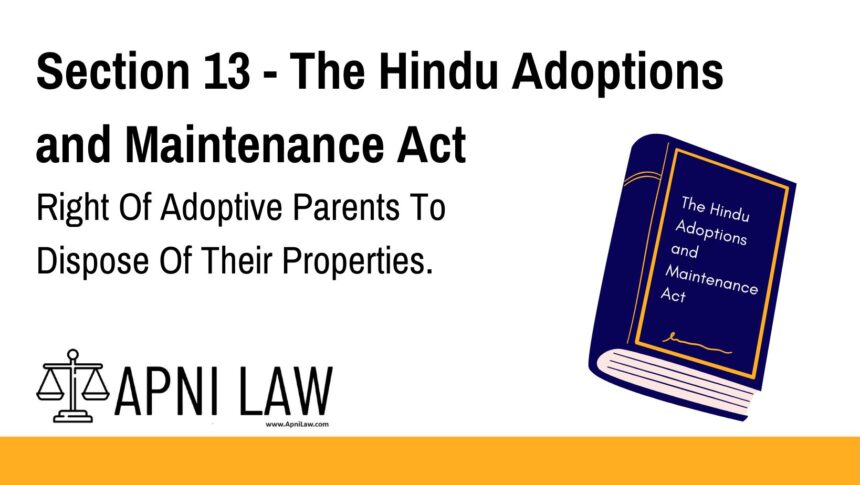Code: Section 13 – Right of Adoptive Parents to Dispose of Their Properties
An adoption does not deprive the adoptive parents of the power to dispose of their property. The adoptive father or mother retains the ability to transfer their property during their lifetime (by inter vivos transfer) or through a will, unless there is an agreement stating otherwise.
Explanation of Section 13 – Right of Adoptive Parents to Dispose of Their Properties
Section 13 provides clarification regarding the property rights of adoptive parents after the adoption of a child. Specifically, it ensures that the adoption does not affect the adoptive parents’ ability to manage or transfer their properties.
- Power to Dispose of Property:
Even after adopting a child, the adoptive parents retain full authority over their property. They can transfer property during their lifetime (inter vivos) or through a will, just as they would if they had not adopted a child. - Exceptions – Agreements:
The only exception to this rule is if there is an agreement to the contrary. In such cases, the terms of the agreement will override this provision.
This ensures that adoption does not interfere with the financial autonomy of the adoptive parents, allowing them to make decisions about their estate as they see fit.
Illustration
Let’s look at an example to better understand Section 13:
- Example: A man adopts a child. He continues to manage his assets, and he can transfer his property either by gifting it to someone during his lifetime or by leaving it in his will. His adoption does not hinder his right to dispose of the property, as long as there is no specific agreement preventing him from doing so.
Common Questions and Answers
1. Can adoptive parents transfer their property after adoption?
Yes, adoptive parents can still transfer their property, whether during their lifetime or through a will. Adoption does not limit this right unless there is an agreement to the contrary.
2. What if there is an agreement that restricts the transfer of property?
In the case of an agreement stating otherwise, the terms of that agreement would take precedence over Section 13, limiting the adoptive parent’s right to dispose of their property.
Conclusion
Section 13 ensures that the adoption process does not interfere with the property rights of the adoptive parents. Adoptive parents retain full control over their estate, allowing them to manage or transfer their property as they wish, unless an agreement specifically limits this ability.








